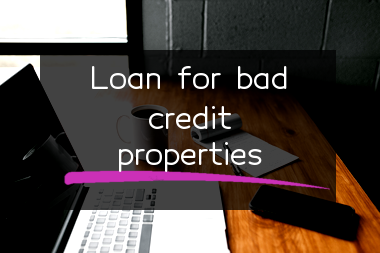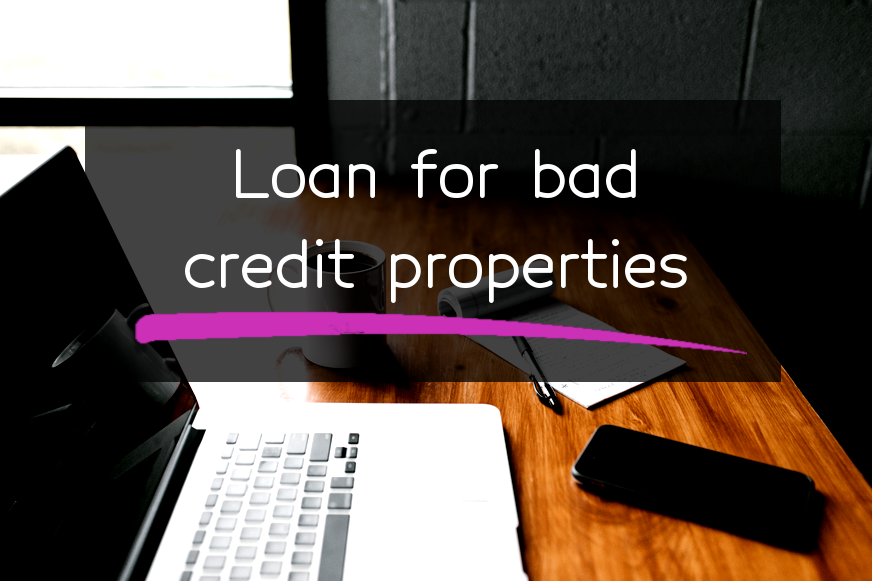- 1. Improve your credit score: If your credit score is not good enough for a loan, you should work on improving it before applying for a loan. Start by making all of your payments on time, reducing your debt, and disputing any errors on your credit report.
- 2. Consider alternative lenders: Traditional banks often have strict lending requirements, but there are many other lenders that offer investment property loans. These may include online lenders, credit unions, and private lenders.
- 3. Put down a larger down payment: If you have bad credit, you may need to put down a larger down payment to secure a loan. This shows lenders that you are serious about your investment and reduces their risk.
- 4. Consider a co-signer: If you have a family member or friend with good credit, you may be able to get an investment property loan with their help. A co-signer agrees to be responsible for the loan if you default, which can make lenders more willing to lend to you.
- 5. Show a strong rental history: If you already have a rental property, be sure to highlight your strong rental history to lenders. This can demonstrate that you have experience as a landlord and that you are capable of generating rental income to pay the mortgage.
- 6. Have a clear strategy: Lenders want to know that you have a clear plan for how you will make money from the investment property. Be sure to outline your strategy for finding tenants, managing the property, and generating income. This can help convince lenders that you are a good investment despite your bad credit.
Conventional Mortgage Lenders & Investment Properties
Conventional mortgage lenders are financial institutions that offer mortgage loans to borrowers who meet certain requirements to purchase homes or investment properties. These lenders are regulated by federal or state laws and typically require a down payment, good credit, and stable income to approve a loan.
When it comes to investment properties, conventional lenders may have stricter requirements than for a primary residence. This is because investment properties are seen as riskier, as they may not be occupied by the owner and may not generate income immediately.
To qualify for a conventional loan on an investment property, borrowers may need to have a higher credit score and a larger down payment. Lenders will also review the potential rental income of the property to ensure that the borrower can afford the mortgage payments, property taxes, and other expenses.
However, investment properties can also be a good source of income for borrowers who are able to secure a conventional loan. With a steady stream of rental income, investors can pay off their mortgage and earn a profit from their investment property.
Options for Investment Property Loans with Bad Credit
Having bad credit can make it difficult to obtain financing for an investment property, but there are still options available:
- 1Hard money loans: Hard money lenders focus primarily on the value of the property as opposed to the creditworthiness of the borrower. Interest rates and fees may be higher, but the qualification requirements are generally less strict.
- 2Private lenders: Similar to hard money lenders, private lenders are typically individuals or small groups who offer financing based on the property rather than the borrower's credit.
- 3FHA loans: While FHA loans are typically used for owner-occupied properties, they can also be used for investment properties. The credit score requirements are typically lower than traditional loans, but there may be restrictions on the number of properties owned.
- 4Portfolio loans: These loans are held by the lender instead of being sold to investors, providing more flexibility in approval criteria. Interest rates may be higher, but the terms can be customized to meet the borrower's needs.
- 5Co-signer or partner: If a borrower has bad credit, they can consider finding a co-signer or partner with good credit to provide support for the loan application. However, if payments are not made on time, it can negatively impact the co-signer or partner's credit.
It's important to note that each option comes with its own risks and benefits, and borrowers should carefully evaluate their financial situation before pursuing any investment property loan.
Hard Money Loans
Hard money loans are short-term, asset-based loans that are secured by real estate property. These loans are issued by private lenders or investors who typically lend money based on the value of the property being purchased rather than the creditworthiness of the borrower.
Hard money loans are typically used by real estate investors to finance fix-and-flip projects or to purchase rental properties. Interest rates on hard money loans are typically higher than traditional bank loans and the loan terms are usually shorter. The loan-to-value ratio is also lower than traditional bank loans, meaning that borrowers are required to put down a higher down payment to secure the loan.
Hard money loans are typically used by borrowers who cannot qualify for a traditional bank loan due to a low credit score or lack of steady income. Additionally, hard money loans can be funded faster than traditional bank loans, making them a popular choice for borrowers who need cash quickly to close on a real estate deal.
Portfolio Loans
Portfolio loans refer to the type of loans that a lender would keep in its portfolio and not sell it to any other investor. In simpler terms, a financing institution with a portfolio loan program would lend money for the purchase of a real estate property under specific terms and conditions without selling the loan to a third party.
Lenders have varied policies for portfolio loans, but they come with the advantage of providing unique and flexible terms and conditions that may match the borrower's needs. A portfolio lender would assess not only the borrowers credit score and income but also the borrower's investment history, assets, and financial goals before approving the loan.
Moreover, portfolio loans have much lower fees, which means the borrower doesn't have to pay all the lender's expenses when processing the loan. Such loans are suitable for borrowers who do not meet the standard lending criteria or do not want to go through the standard mortgage lending procedures.
Improving Your Credit Score
Improving your credit score requires careful planning, diligence, and a bit of patience. The following steps can help you improve your credit score:
- 1Review your credit report: Obtain a free copy of your credit report from each major credit bureau. Check for errors and inaccuracies and dispute them if you find any.
- 2Pay bills on time: Late payments have a significant negative impact on your credit score. Set up automatic payments or reminders to ensure timely payments.
- 3Reduce debt: High balances on credit cards or loans can lower your credit score. Create a debt reduction plan and pay off high-interest debt first.
- 4Keep credit utilization low: Credit utilization refers to the amount of credit you are using compared to your credit limit. Aim to keep your credit utilization at or below 30%.
- 5Avoid new credit applications: Opening too many new credit accounts within a short period can lower your credit score. Apply for credit only when necessary.
- 6Build a positive credit history: Maintain good credit habits over time to build a positive credit history. This includes paying bills on time, keeping credit balances low, and avoiding negative credit actions like collections or bankruptcies.
Improving your credit score is a gradual process, but with time and effort, you can see significant improvements in your creditworthiness.
Just one more thing: if you liked the article, please like us on social media and share this article with friends.



